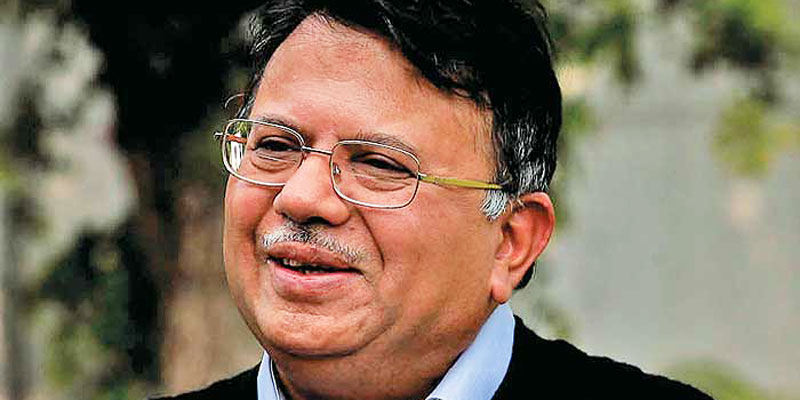If the government accepts the Shah’s proposal, it will indeed ensure the central issue of democratic accountability which the collegium system had subverted.
The expose by Justice Markandey Katju sent shock waves across the country over the sanctity of the collegiums system for the appointment of judges. The Narendra Modi-led BJP government had then vouched for the review of this system which is in connection with the Judicial Appointments Bill introduced by the last UPA government in Rajya Sabha and pending in the parliament.
But what is the collegium system?
It is a system under which appointments and transfers of judges are decided by a forum of the Chief Justice of India and the four senior-most judges of the Supreme Court.
It has no place in the Indian Constitution.
And what does the Constitution actually prescribe?
Article 124 deals with the appointment of Supreme Court judges. It says the appointment should be made by the President after consultation with such judges of the High Courts and the Supreme Court as the President may deem necessary. The CJI is to be “consulted” in all appointments, except his or her own. Now, it is an established convention to make the senior most judge of the SC as CJI.
Article 217 deals with the appointment of High Court judges. It says a judge should be appointed by the President after consultation with the CJI and the Governor of the state. The Chief Justice of the High Court concerned too should be consulted.
Given the problems of the collegiums system, as pointed out by Katju, a National Judicial Commission was envisaged as an alternative. The Constitution (98th Amendment) Bill was introduced in the Lok Sabha by the NDA government in 2003. It provided for the constitution of an NJC to be chaired by the CJI and with two of the senior-most judges of the Supreme Court as its members. The Union Law Minister would be a member along with an eminent citizen to be nominated by the President in consultation with the Prime Minister. The Commission would decide the appointment and transfer of judges and probe cases of misconduct by judges, including those from the highest judiciary.
Then UPA government brought Judicial Appointments Bill in 2013. The JA Bill said that the commission will be presided over by the Chief Justice of India, and will include two Supreme Court judges, the Law Minister, two eminent persons and the Justice Secretary, who will be the Member-Secretary. The Leader of the Opposition in either House will be part of a committee which nominates the eminent persons, the other members being the Prime Minister and the Chief Justice.
But it seems the changes are in the offing.
According to a report in the Indian Express, “The Law Commission of India Chairman and former Delhi High Court Chief Justice A P Shah has proposed that a seven-member Judicial Appointments Commission (JAC), with a “preponderence of members of the judiciary”, should be set up to make recommendations to the President on transfer and appointment of judges to the higher judiciary.”
In a note sent to Union Law Minister Ravi Shankar Prasad, Shah has said the JAC’s recommendations should “ordinarily be binding on the President”, and in case the President rejects any name, it should be open to judicial review. He has also said that the principles to be used for determining the composition of the JAC must be “continuity and participatoriness”.
Shah has said the Chief Justice of India (CJI) should be the chairperson of the proposed body, with three sitting judges of the Supreme Court, the Minister of Law and Justice, an eminent jurist and an eminent member of civil society as its other members. The last two must be chosen by a committee comprising the CJI, Prime Minister and leader of the single largest party in the opposition in the Lok Sabha, he has said.
It should be noted that the JAC Bill 2013 of the UPA government also proposed the inclusion of two “eminent persons” in the JAC, both selected by the same committee as suggested by Shah. But the Bill proposed a six-member JAC.
According to IE, Shah has said, “This scheme would be adversely affected were the composition of the JAC not to be provided in the Constitution but in statute. Besides, making such provision in the Constitution will make amendment more onerous, thereby lending greater stability and certainty to the new framework.”
He has also stressed that the JAC should be a “permanent body and must not be constituted on an ad hoc basis as and when the need arises”.
On the system for selection of judges by the proposed body, Shah has said that the decisions should be taken by consensus. “If consensus is elusive, decisions may be made by majority, with all dissenting notes accompanied by reasons being recorded in writing,” he has said.
In order to ensure transparency in the entire process, Shah has recommended that the “entire record of the process, starting from the nominations received up to the final recommendation made to the President, must be publicly disclosed”.
Shah has also favoured a fixed tenure of two years for the CJI, and an increase in the retirement age of HC Judges to 65 years to bring it at par with that of SC Judges.
If the government accepts the Shah’s proposal, it will indeed ensure the central issue of democratic accountability which the collegium system had subverted.





